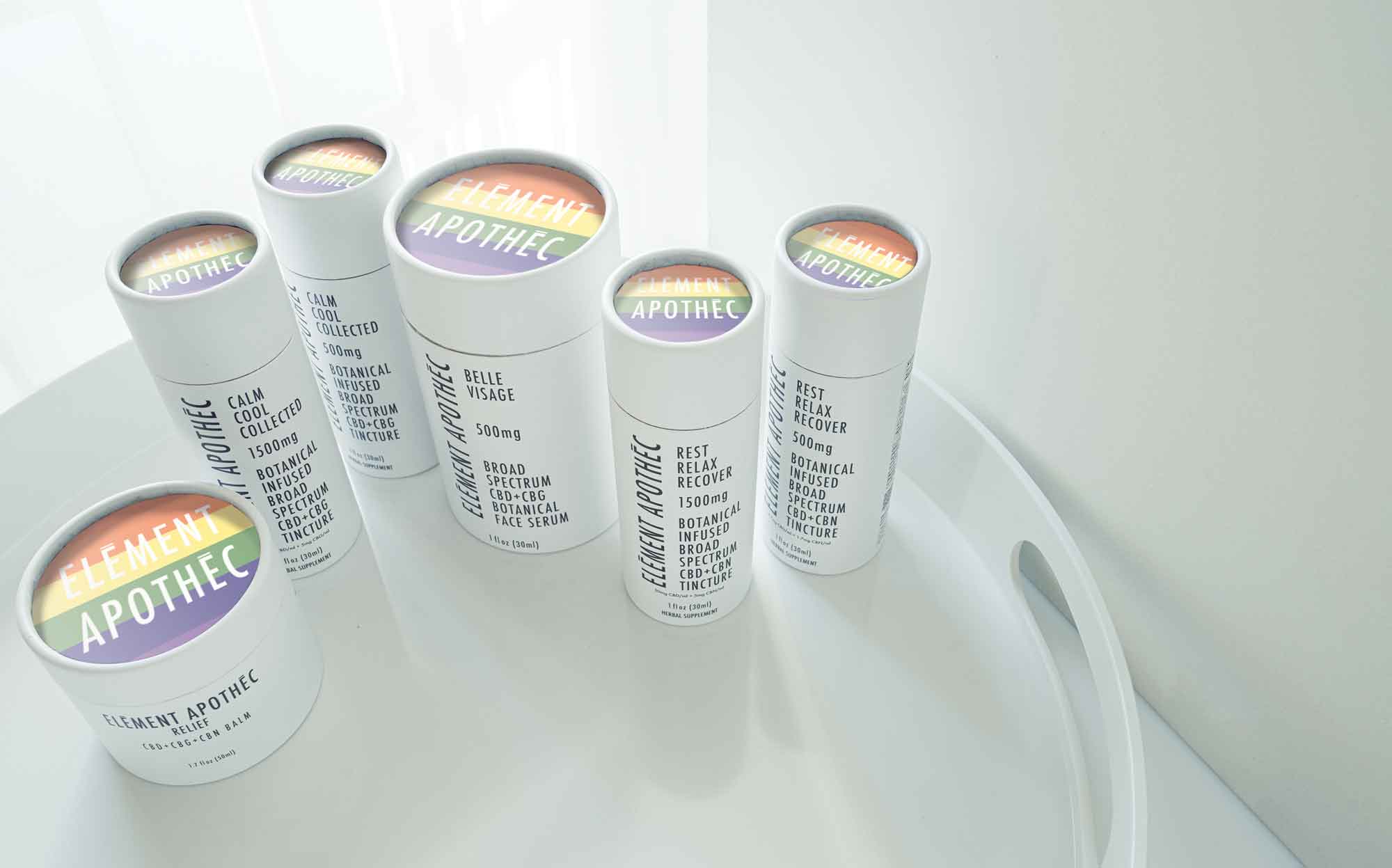Cannabis seems to be everywhere. Sales for cannabidiol (CBD), excluding those associated with medical cannabis, are predicted to exceed $20 billion by 2024. When you include medical cannabis, this number is closer to a jaw-dropping $42 billion. Still commonly referred to as “marijuana” by many, experts and healthcare providers are moving away from using this racially charged term and, instead, using the broader scientific and clinical term — cannabis. This word includes both recreational marijuana, as well as medical products, and industrial hemp that don’t get you “high.”
Cannabis is a plant that has been used as a medicine for centuries around the world. However, it still remains a federal Schedule I controlled substance — a category considered the most dangerous by the U.S. Drug Enforcement Administration (DEA). Each state has its own regulations for cannabis, ranging from being recreationally legal and widely available to causing fines and jail time. Currently being researched for a range of conditions, this plant might benefit people with anxiety, sleep problems, severe nausea and vomiting, seizures, and chronic pain.You may be unsure how or why to talk with your healthcare provider about cannabis. But there are some good reasons to — for your own health and safety. Read on to learn more.
The rise of cannabis use in the U.S. and the challenge it presents from a healthcare perspective
With the rise and popularity of cannabis in the U.S., you may be wondering whether it could work for you. As research and education of healthcare professionals catch up, it means your healthcare provider may not know all of the
potential risks and benefits. Many providers are not trained in medical cannabis and may not be able to advise you.If your provider does not know the answers right away, they might point you to
resources. They may also recommend another provider who has more experience with medicinal cannabis. Cannabis has risks and side effects like all medications, and there are certain groups of people at higher risk.
Why it’s important for your healthcare provider to know your complete medical history
Studies show that a supportive relationship between a person and their provider
leads to better health results. Having an empathetic provider who is trained in cannabis to treat medical conditions will allow you to ask questions, get the right answers, and decide on the best treatment together. This is called
informed and shared decision-making and should happen with every provider and every medication or treatment.Part of this decision-making process includes sharing your complete medical history with your providers. This includes the following information:
- All medications, vitamins, supplements, and herbs you use (cannabis included)
- All past and present medical conditions you have
- Any food, medication, and environmental allergies you have
- Any past surgeries you’ve had
Be ready to share with your provider the type of cannabis you have used or are considering using, how you take it (e.g., by mouth, smoking, topical creams), the dose, how often you use it, and any benefits or side effects you experienced. This information is crucial to helping your provider figure out the best treatment for you while avoiding drug interactions and severe side effects.
How to discuss your cannabis use with your provider
In preparing for your appointment, remember it’s an opportunity to advocate for yourself and get the care you deserve. It’s a good idea to strategize beforehand. You may want to keep a cannabis journal to bring to your appointment. Here are some other ideas to think about while preparing:
- Prepare for your appointment by writing out your goals and questions for your visit.
- Consider bringing a support person to your visit.
- Consider starting with telemedicine visits, which may be more comfortable and convenient for you. Telemedicine can be a great way to build a relationship with your provider and may help you feel more comfortable talking about certain questions.
- Ask questions!
- Make sure you feel like you are a part of the shared decision-making process with your provider and that you feel good about the plan made. If you have concerns about the plan, speak up. It’s okay to disagree.
- Document what your provider tells you. Don’t be shy about taking notes.
Don’t end the appointment until you are sure you understand your provider fully. Before you leave your appointment, make sure:
- You have your questions answered.
- You understand your treatment plan.
- You have resources to learn more.
- You know how to contact your provider for follow-up questions.
How can cannabis use affect drug interactions
As cannabis products grow in popularity, many people have become interested in using them. That being said, it is not the right choice for everyone. Just like all medications, cannabis has drug interactions that you should be aware of before starting it.Cannabis can interfere with the
following medications:
These are not the only medications that interact with cannabis. This is why it’s important for all providers to know if you are using cannabis products, since it could potentially interfere with another regular prescription of yours.
The side effects of cannabis and potential impact on your medical care
Every person reacts to cannabis differently. Just because one dose works really well for your friend or family member does not mean it’s the right amount for you. This is also true when it comes to which forms work for you and what side effects you’ll experience.The most common side effects of cannabis are mild, but
can include:
- Dizziness
- Dry mouth
- Drowsiness
- Nausea
- Mild anxiety
- Sleep issues
- Blurry vision
- Headache
Rarely, some people experience more severe side effects including:
If you are having a hard time with side effects after starting cannabis, make sure to keep track of them and communicate them with your provider.
The impact of cannabis on pregnancy and nursing
It is recommended to avoid using cannabis if you are pregnant, planning to become pregnant, or nursing. While
research is limited on how cannabis affects pregnant people and unborn babies,
there is concern it can pass through the placenta and put babies at a higher risk for growth problems before birth, as well as longer-term behavioral problems.
A
2020 review of current research showed that cannabis could reach infants through human milk, but the amount they receive can vary. Delta-9-tetrahydrocannabinol (THC) — the chemical in the cannabis plant responsible for providing a “high” or feeling of euphoria —
has been found in human milk as little as one hour after using cannabis and can stay in milk for
up to 6 weeks.
Research on short- or long-term effects for infants exposed to cannabis through human milk is limited, but some studies suggest this might cause
developmental delays in motor skills. There’s also a worry that THC in human milk can
affect brain development in infants.
If you disclose illegal cannabis use to your doctor, can you get in trouble?
If you are worried your provider may tell the authorities about your interest in or use of cannabis, you can breathe a sigh of relief. Due to the
Health Insurance Portability and Accountability Act (HIPAA), providers are not allowed to share your health information with others not part of your healthcare team. This federal regulation applies to all U.S. states, the District of Columbia, and all U.S. territories, making your provider’s office a safe space for you to discuss cannabis use.
There are hefty legal repercussions for providers who break patient confidentiality. This applies to cannabis as well as other illegal substances. One of the only times HIPAA can be broken is if your behavior poses a threat to yourself or those around you. In some states, using cannabis while pregnant is considered a form of child abuse, so providers are
required to report this to Child Protective Services.
Outside of these exceptions, if you are using cannabis either medically or recreationally, your provider is barred from sharing this information with people who aren’t part of your healthcare team. Trust your provider will create a safe space for you to talk about your cannabis use.
Can my provider prescribe medical cannabis for me?
There are only a limited number of FDA-approved medications on the U.S. market that include a form of cannabis —
Epidiolex,
dronabinol (Marinol), and
nabilone (Cesamet). Apart from these few formulations, medical cannabis is not technically prescribed but rather recommended. People may then be directed to cannabis dispensaries to obtain their providers’ suggested products.Medical and recreational cannabis use laws vary from state to state and have been evolving rapidly in the recent past. The best way to find out your location’s regulations is to discuss cannabis use with your primary care provider first. They can share details with you regarding the process of obtaining medical cannabis where you live.
The bottom line
Healthcare providers who advise people to use medical cannabis are used to evaluating the risks and benefits of adding cannabis to a current medication regimen. After a full evaluation of your health background, medication list, and lifestyle, you and your provider can decide whether cannabis is the right choice for you. Through a joint effort, you can make an empowered and safe decision.












